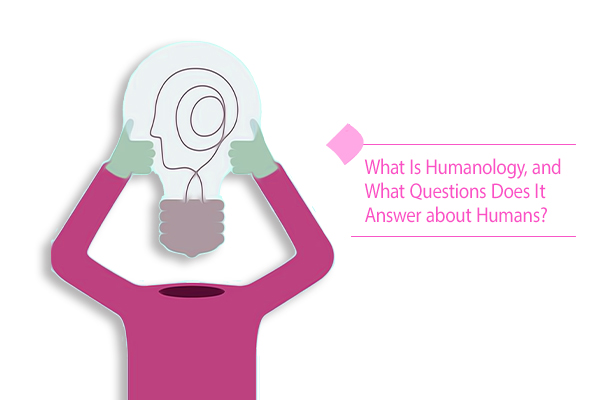What Is Humanology[1], and Where Does It Apply to?
What is a human being and to which class of creatures does s/he belong? This seemingly simple question has occupied the complex mind of human beings for many centuries.
If we classify the creatures of the material world into three main groups of inanimate objects, plants, and animals, humans are somehow similar to all these creatures, but at the same time, different from all of them. That makes the classification a little difficult.
The human body has some features like mass, weight, and size; that is why it is similar to objects. It is also similar to plants in terms of having the ability to grow and reproduce. It is like animals in many ways too, including physiology, social life, and having lust and anger. Regarding all these attributes, which category does the human being fall into?
It is obvious that human beings are not objects or plants. So the first two options are automatically removed, and only one option remains: animals! Humans have more in common with animals regarding appearance and some behavioral characteristics; maybe that is why biologists classify humans as mammals. Of course, this issue is not just limited to biology; many ancient and modern philosophers also consider humans to be animals, and they only disagree on the aspects which distinguish them from other animals.
The following sayings are just small examples of many descriptive phrases that Western thinkers use to talk about what a human being is. As you can see, most of them believe that humans are a kind of animal.
- “Man is a political animal” (Aristotle, The Politics 1).
- “At the beginning of human history, man lost some of the basic animal instincts in which an animal’s behavior is embedded and by which it is secured” (Viktor Frankl, Man’s Search for Meaning).
- “Man is a perpetually wanting animal” (Abraham Maslow: A Theory of Human Motivation).
- “More than two million years ago, somewhere in the African savannah, this strange animal appeared” ((Jean Francois Dortier, L’Homme, cet Étrange Animal).
You may ask yourself how important is the way we define human beings, and whether we classify them as animals or not. It may not seem to be very important, but if we realize that the answer to this question forms the basis of social structures, education systems, and the civil law in most countries, we will take it more seriously. It is fair to state that human happiness both in this world and in the hereafter depends on the answer we give to this question.
In this series of articles on humanology, we are going to find a proper and convincing answer to these challenging questions:
- What kind of creature is the human being?
- What distinguishes humans from other creatures?
- To which dimension of human existence is our happiness or misery related?
What Is Humanology?
Due to its complexities, this vast universe raises many questions in our minds. These questions might be simple or general, such as:
How did the universe come into existence?
Why were humans created?
Finding the answer to any of these questions allows people to acquire some kind of knowledge about the existence. In addition to the joy of discovery, this knowledge meets their daily needs. So different branches of science have been established and are constantly expanding. One of these branches is humanology, which aims to study human beings. However, since the human is not a one-dimensional being, it is impossible for one branch of science to know all the aspects of human existence.
Based on what was stated above, humanology can be defined as “any system of knowledge which examines human beings, some dimensions of their existence, or any special human group.”
There are different types of humanology which, based on their viewpoint, can be divided into macro-humanology and micro-humanology.
Macro and Micro Humanology
Questions about human beings can be divided into two categories:
First, the topics which look at humans as a whole and raise fundamental questions about us, such as: How were we created? Do we have other dimensions besides the body? What is the philosophy of our life? What happens to us after death?
The second type of questions are more detailed compared to the first ones; they only refer to certain aspects of humans, like the questions that a sociologist or a psychologist comes up with.
Types of Humanology Based on Approaches
Humanology is also divided into different categories based on the approaches used to know human beings. Here, humanology is classified into four main categories:
- Experimental or scientific humanology
- Mystical humanology
- Philosophical humanology
- Religious humanology
We will discuss these methods in detail in the following articles. We will also explain that what we discuss as humanology in this series of articles is different from the meaning of humanology in Western societies.
For a comprehensive understanding of this subject, we recommend that you follow our discussions thoroughly.
We welcome your comments and suggestions about this article.
[1]. Contrary to the common perception that humanology is solely concerned with shaping relationships and improving individuals’ roles as friends, family members, managers, etc., the focus of these discussions is to explore the existential dimensions of human beings from multiple viewpoints. In a broader sense, humanology is often associated with promoting well-being, comfort, and material success. However, within the context of these articles, the aim of humanology is to delve into fundamental questions about our essence, the ultimate goal of our existence, and the path towards becoming similar to the perfect human. Here, humanology is the same as self-knowledge; it deals with our ‘true self’ or the human dimension of our existence.

